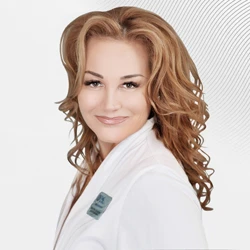Patients often ask questions about methods of contraception after childbirth, their necessity and safety for the health of the expectant mother and her baby.
First of all, it is important to note that you can resume sexual intercourse 2 months after giving birth, after a routine examination by a gynecologist. And if you are not planning a new pregnancy in the near future, it is necessary to protect yourself, especially since today there are many methods of contraception that can be adapted to the individual characteristics and preferences of women and men.
Postpartum lactation
Postpartum lactation under the condition of free feeding and absence of menstruation is in itself an effective but temporary method of contraception.
Free feeding (feeding the baby only with breast milk) is the main condition for the effectiveness of this method of contraception, it includes the following conditions: feeding the baby on demand (but at least every 4 hours during the day and every 6 hours at night), abstaining from additional drinking, teats and bottles.
It is important to remember that lactation does not exclude pregnancy.
To ensure effective protection against pregnancy, another method of contraception should be used immediately after menstruation is restored, the frequency or duration of breastfeeding is reduced, the child is regularly given water, the transition to artificial nutrition begins, or when the child reaches the age of 6 months.
It should be noted that the World Health Organization and the European Society of Pediatricians recommend exclusive breastfeeding up to 6 months of a child's life, and the introduction of complementary foods should begin no earlier than 5-6 months.
Interrupted sexual intercourse and the calendar method of contraception are not suitable for this period, since there is no menstruation, and pregnancy can occur as early as the first ovulation after childbirth.
Barrier methods
Male condoms are most widely used in Russia. They can be used after childbirth without any restrictions, if there are no allergic reactions to latex. Other barrier methods popular in foreign countries have not become widespread in Russia (female condoms, neck caps, etc.). The incidence of pregnancy with proper condom use for 1 year is low and amounts to 2%.
Spermicides (gels, vaginal suppositories, creams)
They are widely available on the market and are diverse in their composition, but they can cause various allergic reactions. The pregnancy rate when using them is 29%.
Hormonal contraception
The current opinion that a nursing woman should not take hormonal contraceptives is a myth. Within 6 months after giving birth, when the baby receives only breast milk as food, it is undesirable to use combined oral contraceptives (containing estrogens and progestogens), since the estrogen (ethinyl estradiol) contained in them is reduces milk production. Therefore, in the period from 2 months to 6 months after childbirth, hormonal contraceptives containing only progestogen (desogestrel) can be used. Their use is safe and effective during breastfeeding.
Injectable progestogen preparations or implants are not convenient to use, since their use requires consulting a doctor and performing injections, so they are not widely used for contraception.
After 6 months after giving birth, complementary foods are added to the baby's diet, the need for milk gradually decreases, so during this period it is already possible to use combined hormonal contraceptives, including a vaginal ring or a skin patch.
Intrauterine contraceptives
If a woman does not plan to become pregnant within 5 years after giving birth, then the option of installing a conventional copper-containing intrauterine device or the Mirena intrauterine hormonal system can be recommended. The frequency of pregnancy when using a copper–containing spiral is 0.8%, and Mirena is 0.1%. The main condition when using this method of contraception is the absence of inflammatory diseases of the pelvic organs.
Pregnancy planning, the use of the most effective methods of contraception and proper prevention of unwanted pregnancies play an important role in maintaining women's health.
Before using certain contraceptives, it is best to consult a specialist. This will help you choose a safe, reliable, effective and convenient method of contraception for you and your partner.
Was this information helpful?
Questions and answers
How can you tell true contractions from false ones during pregnancy?
Only a doctor can tell true contractions from false ones after an examination and additional tests.







.webp)



.webp)



.webp)
